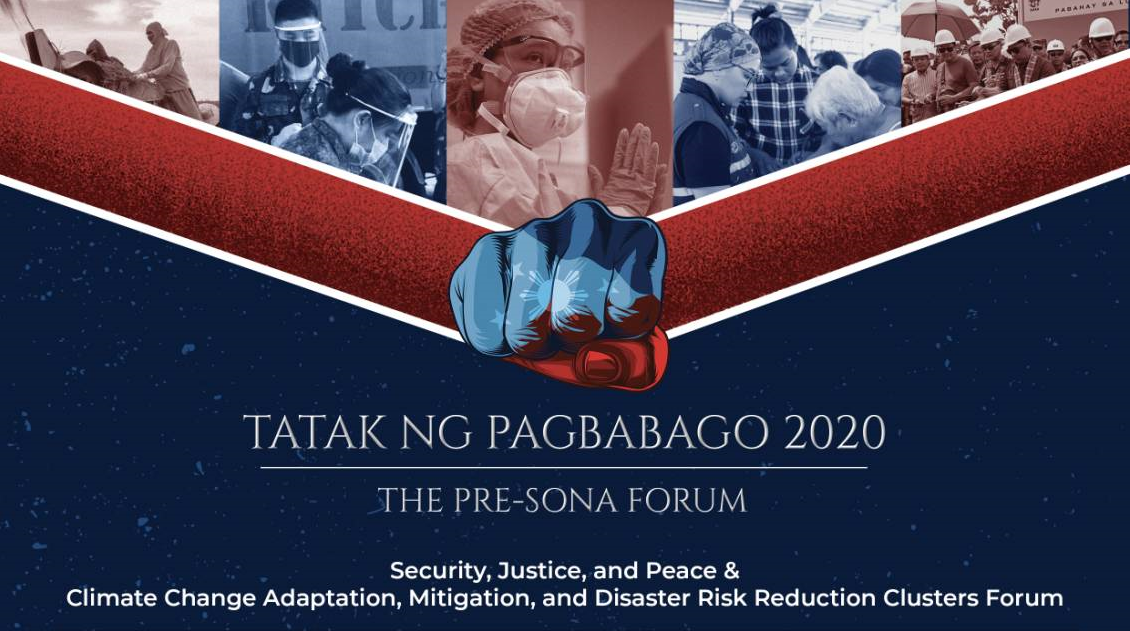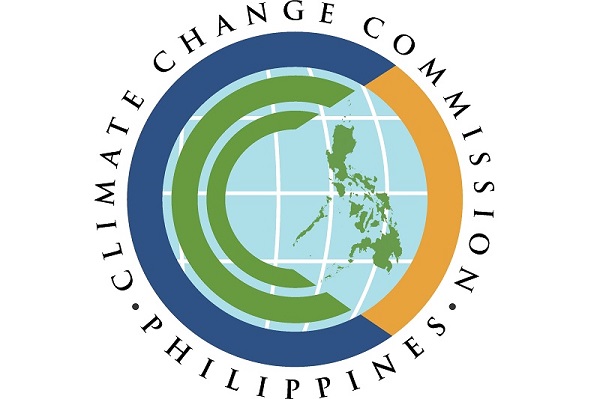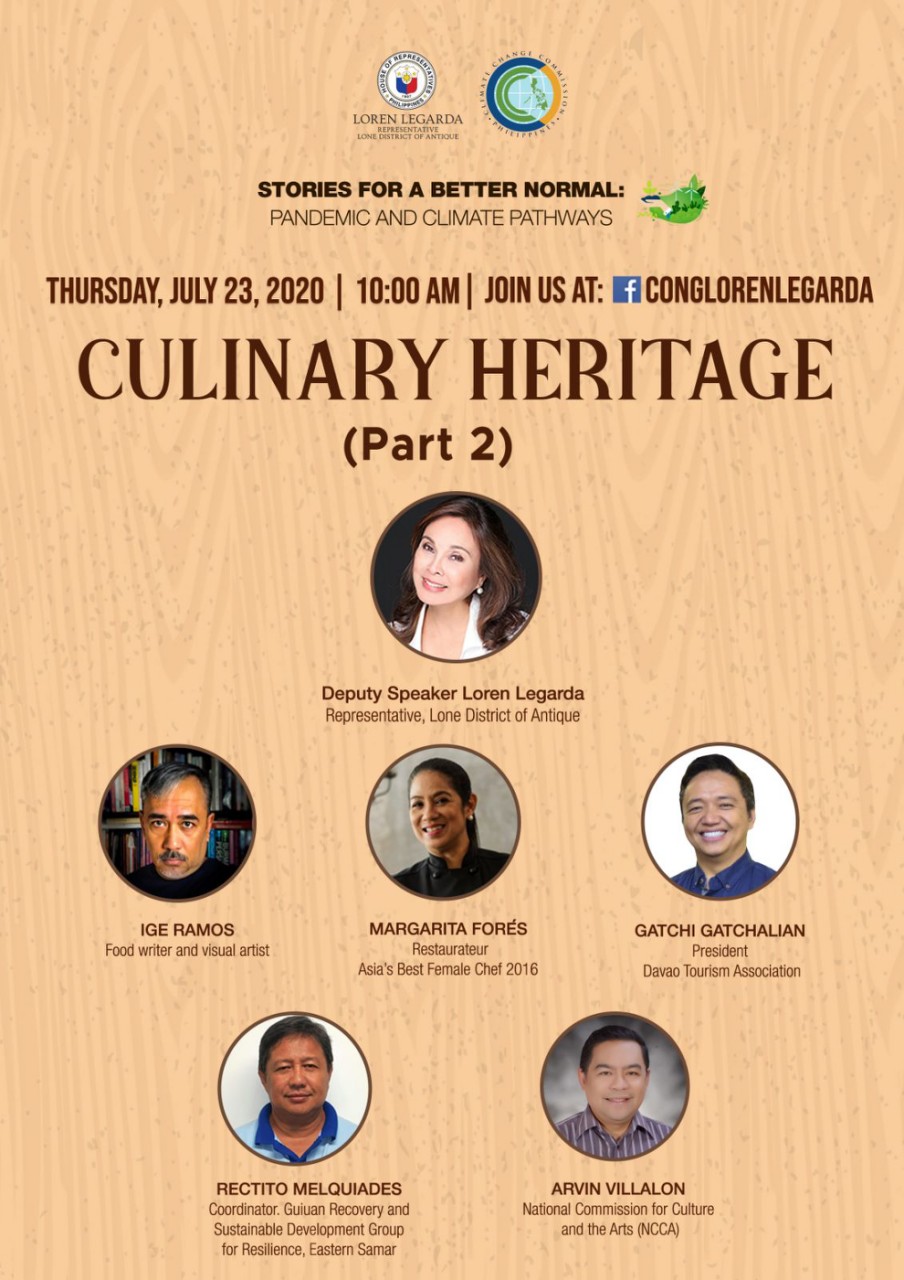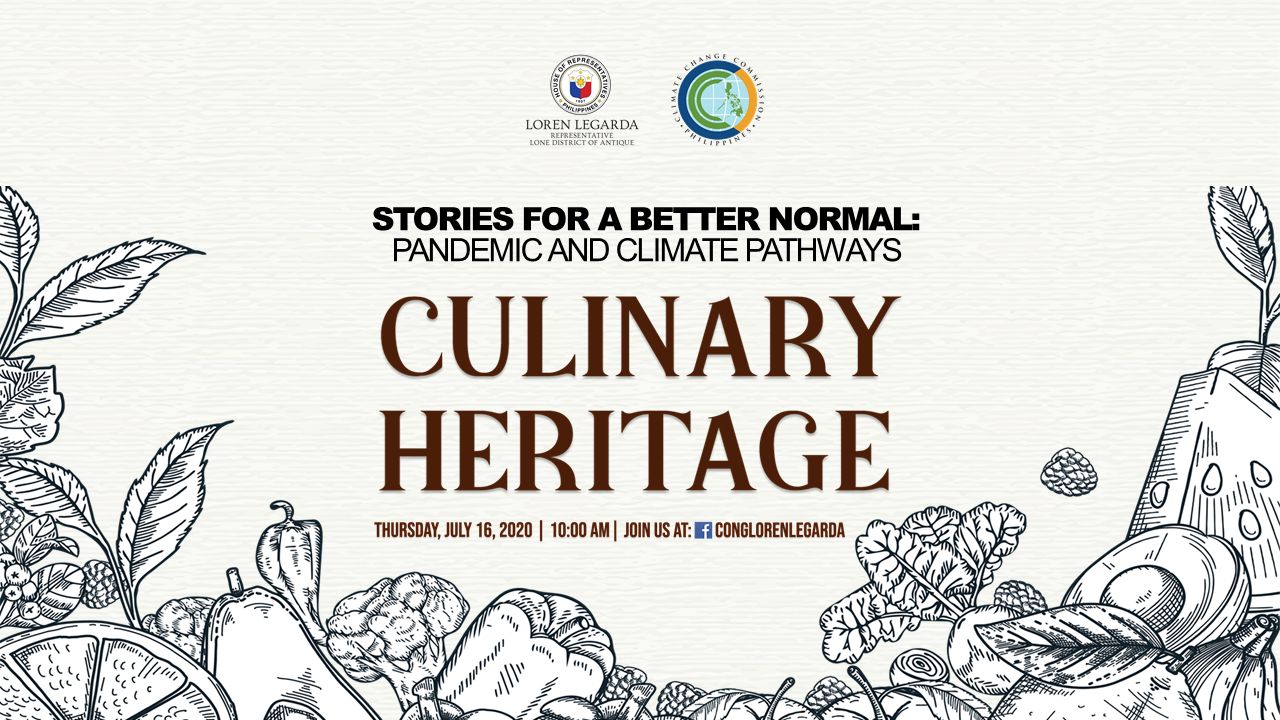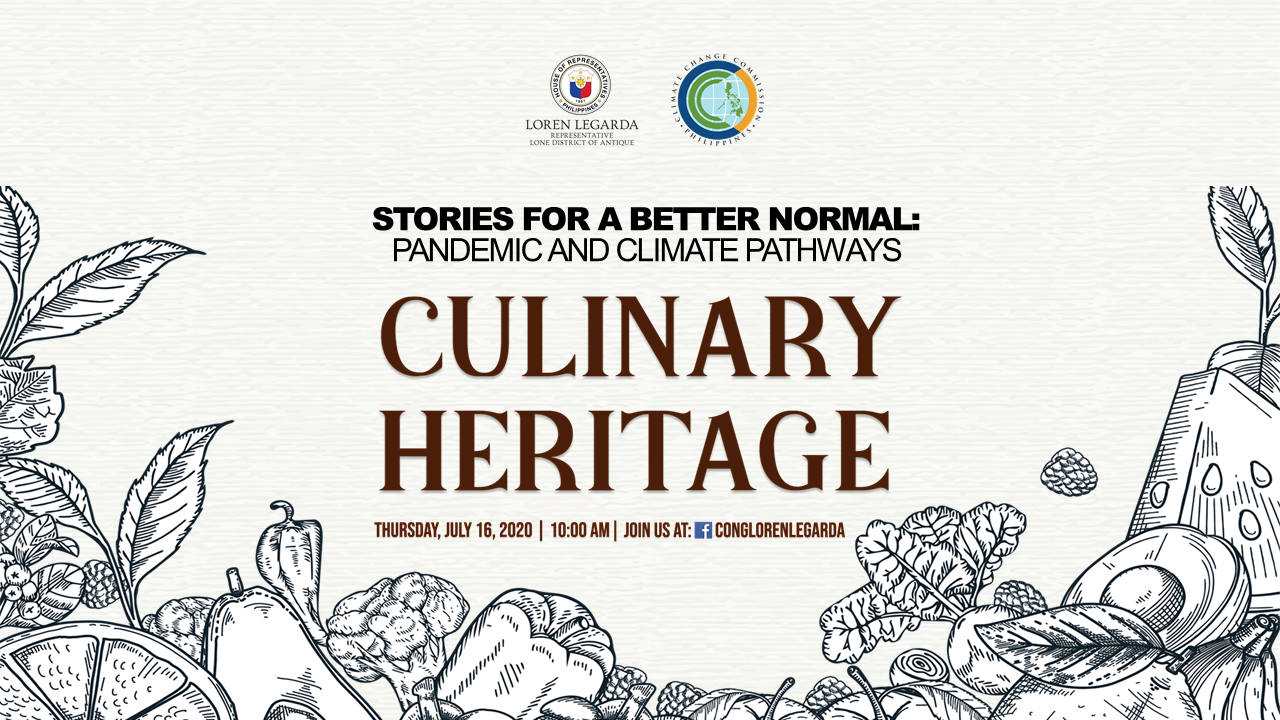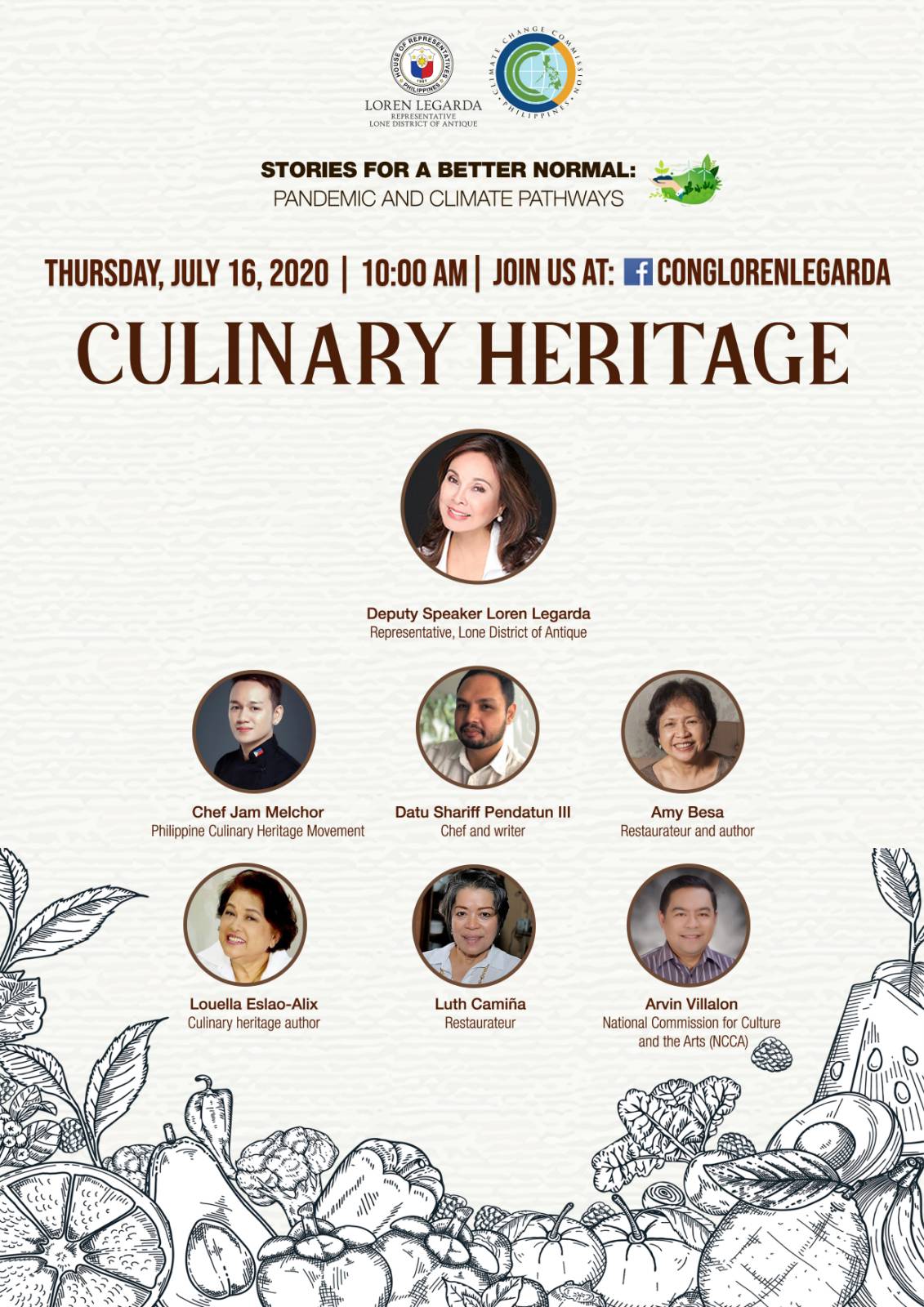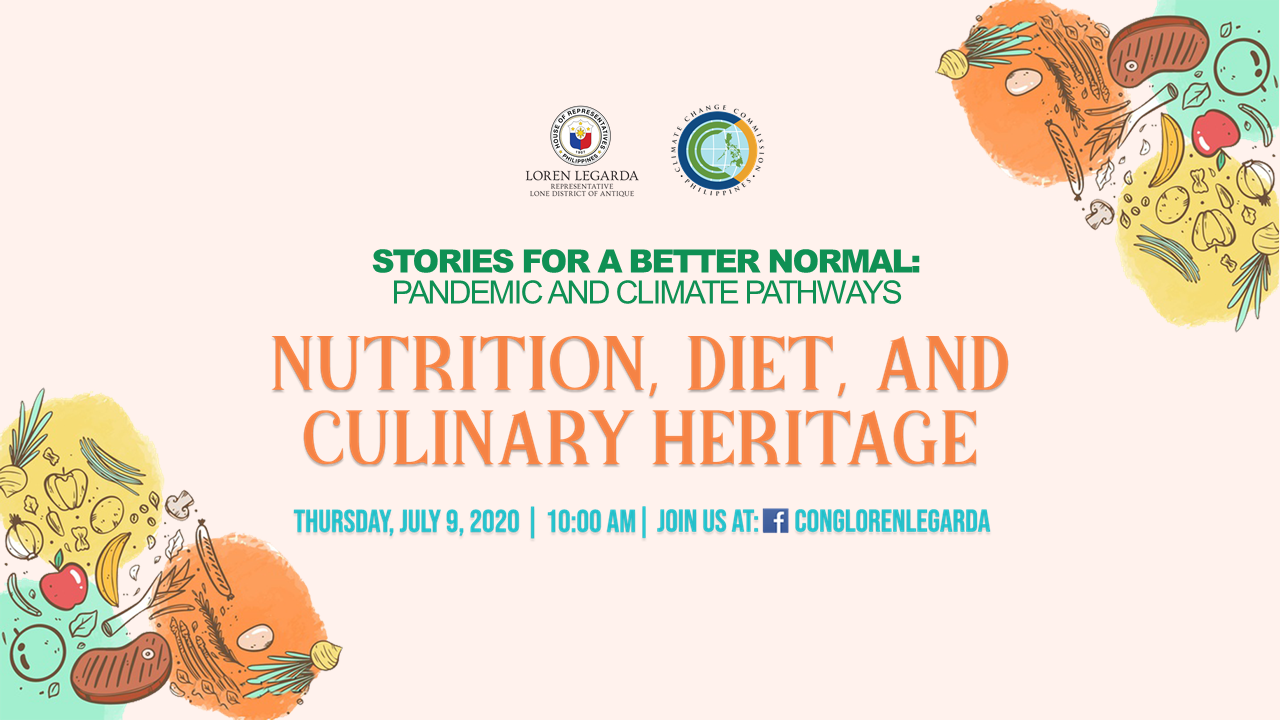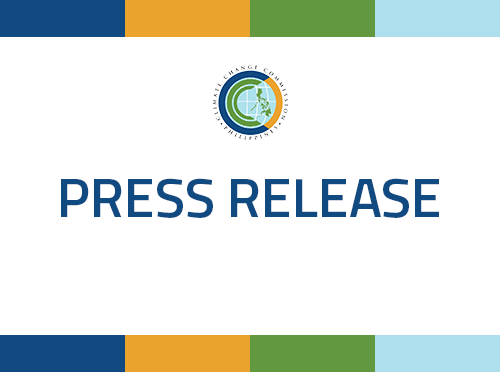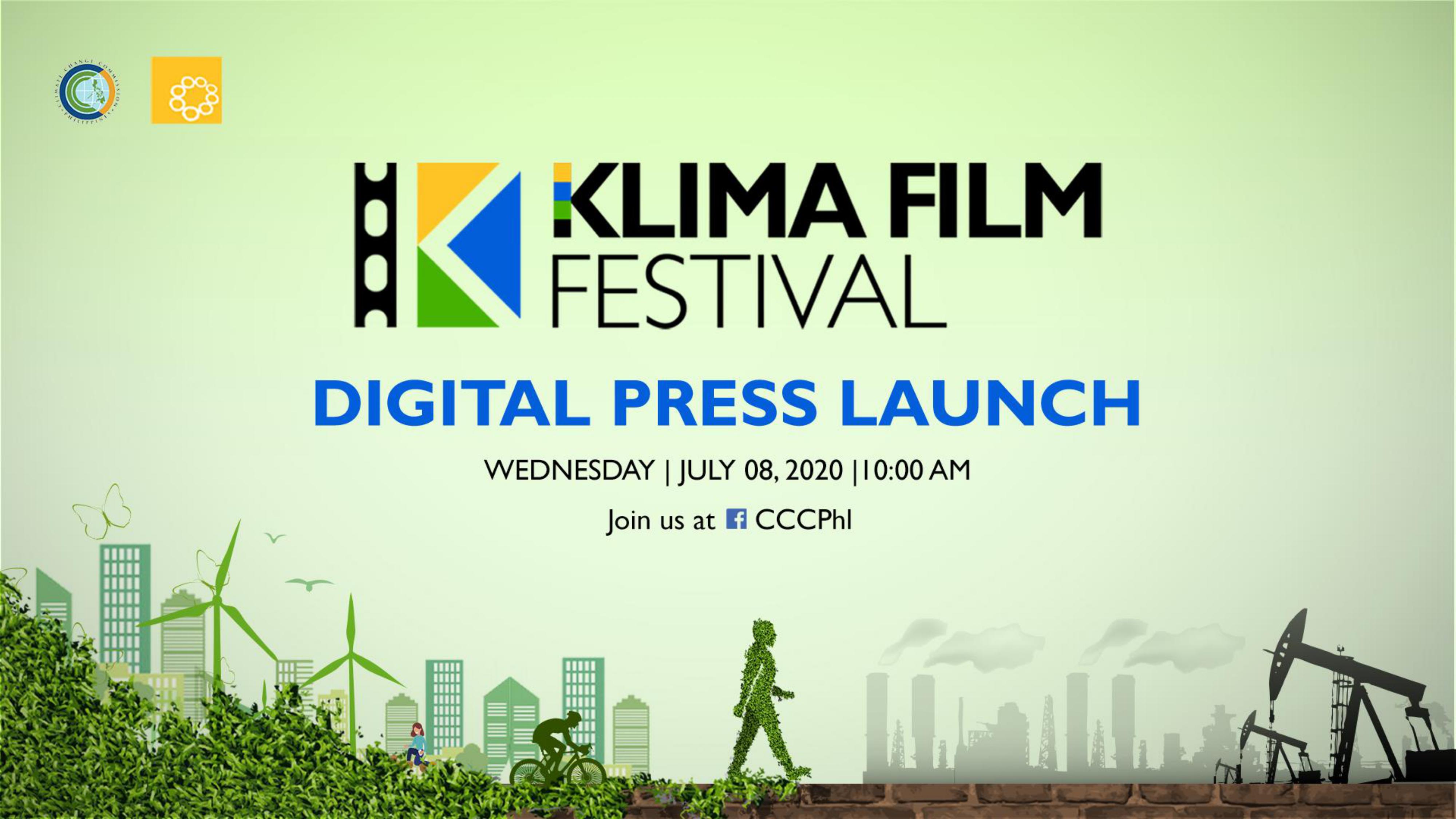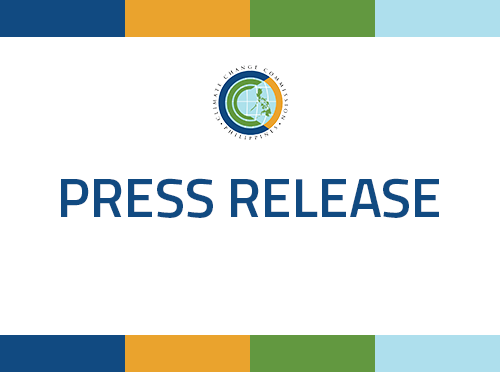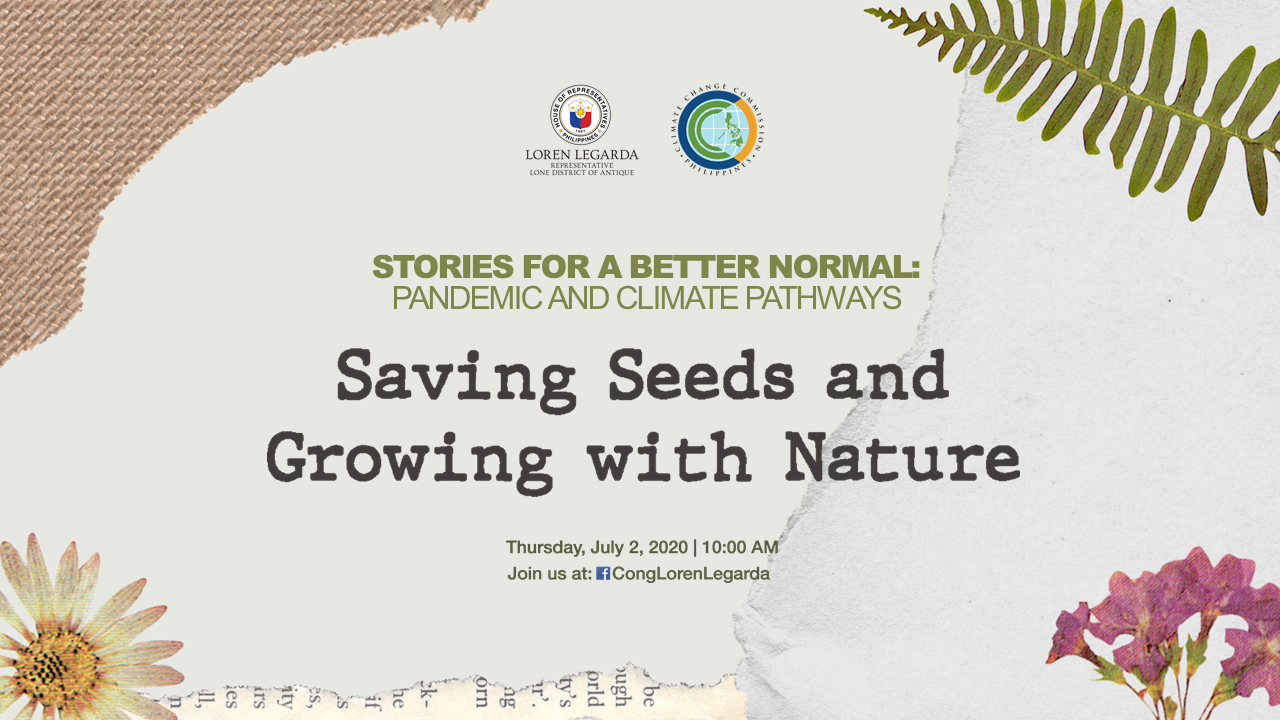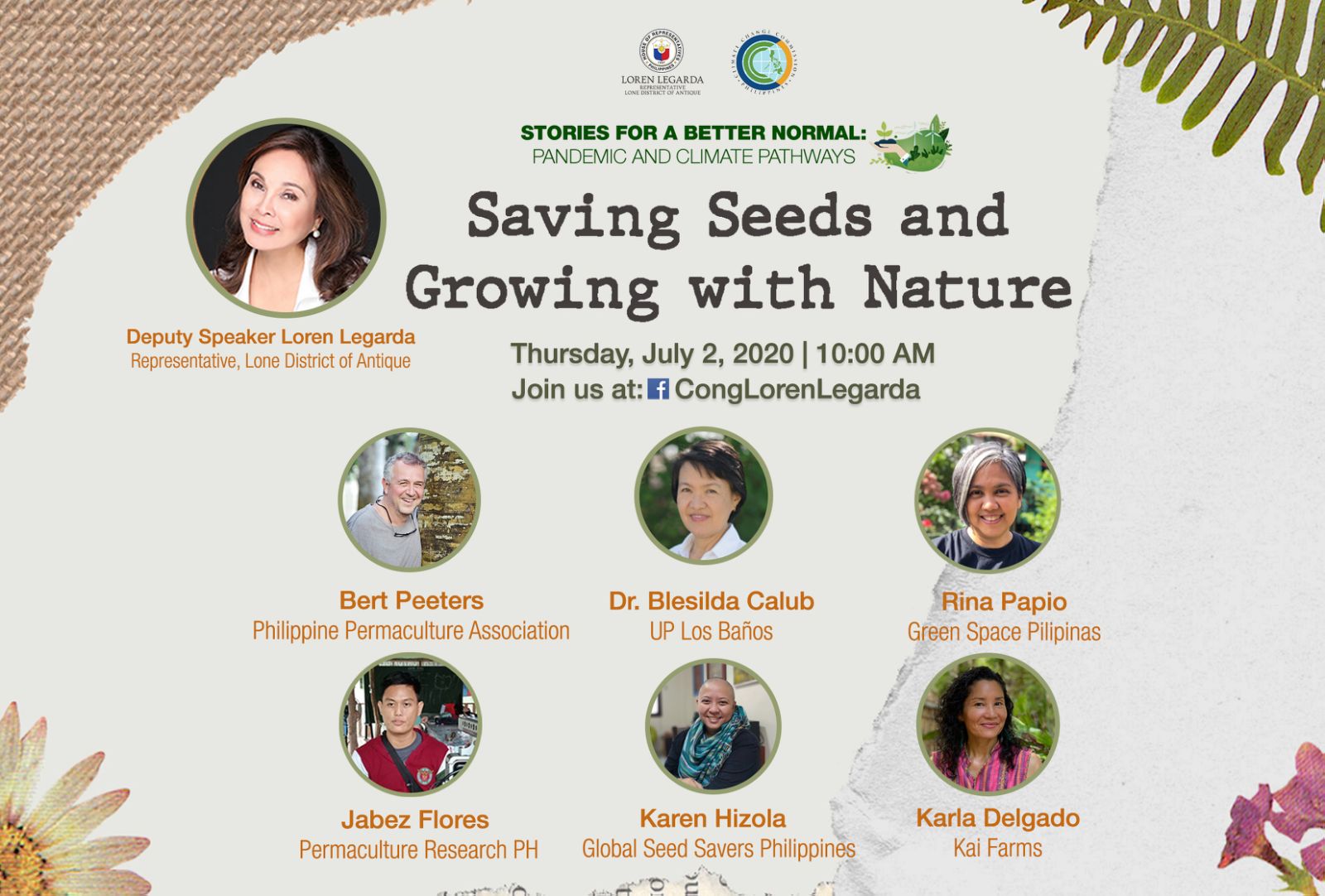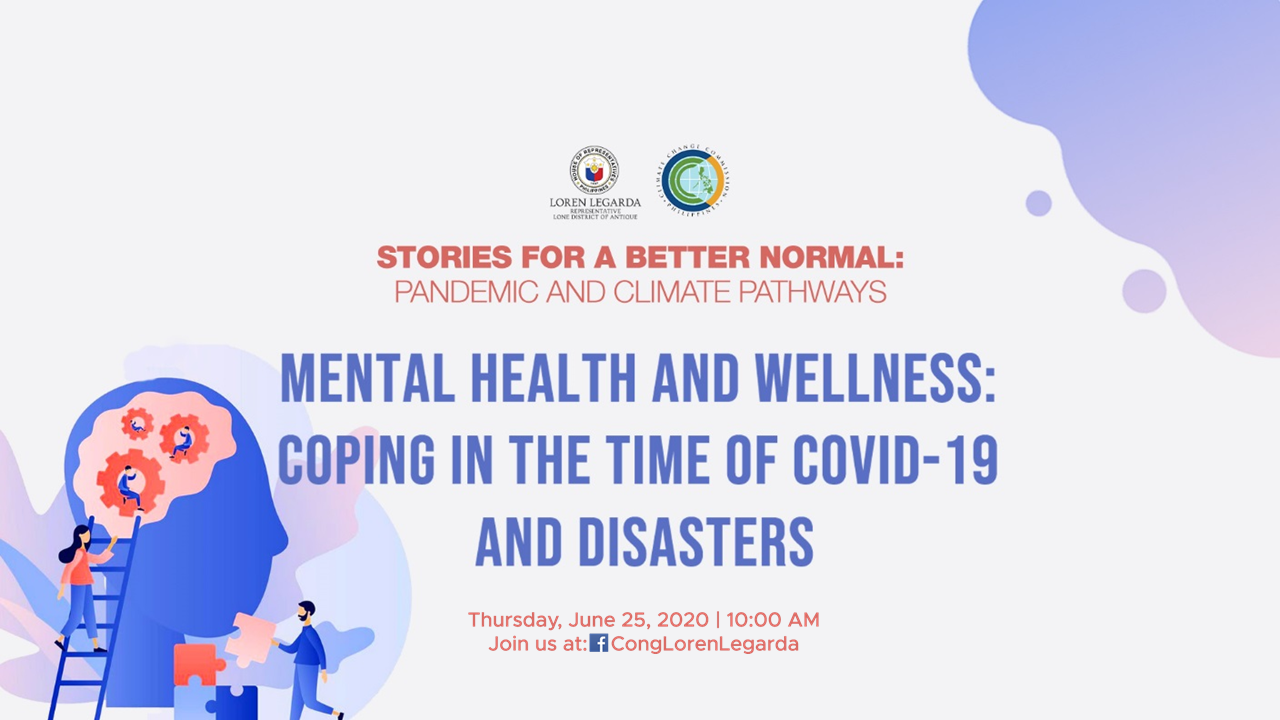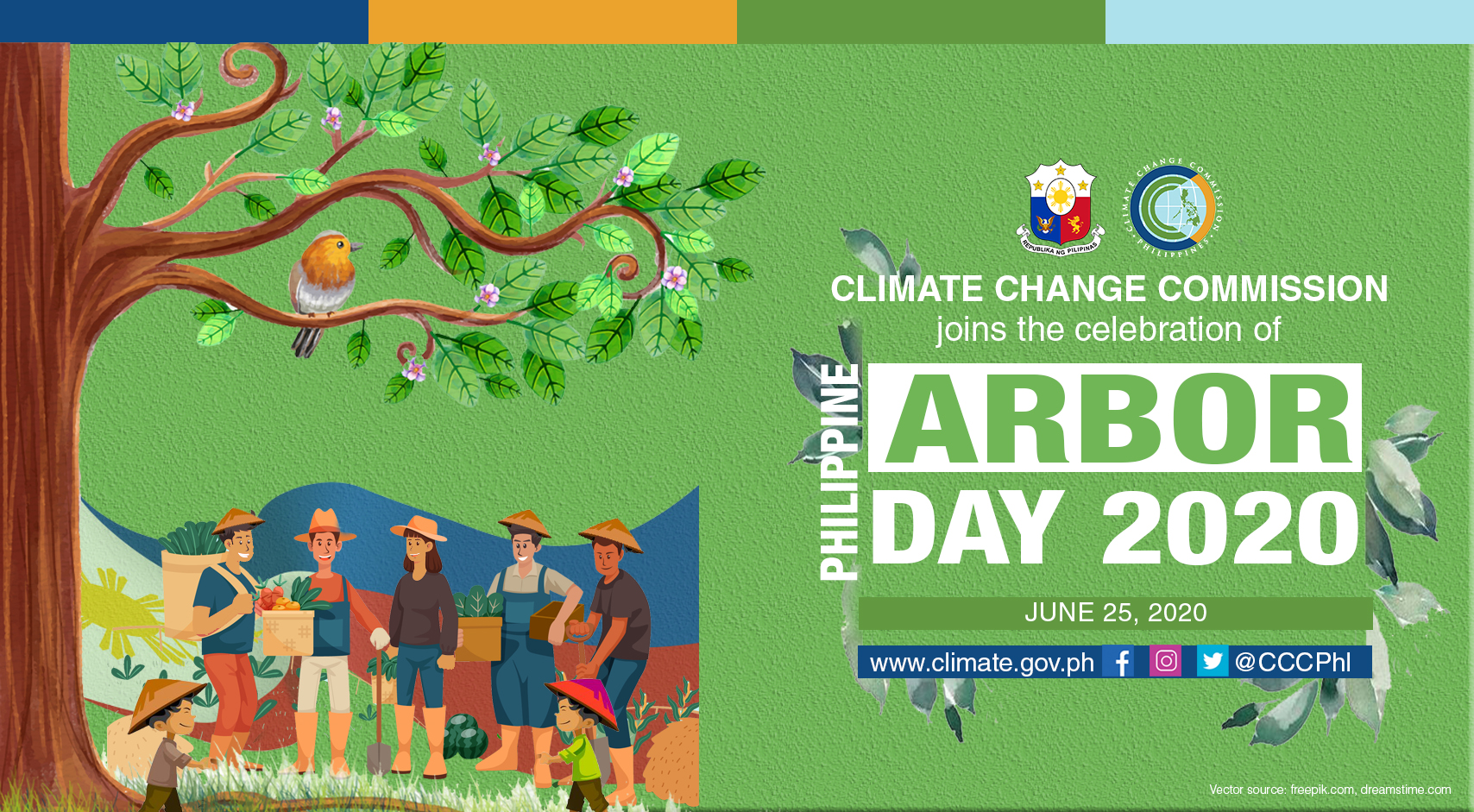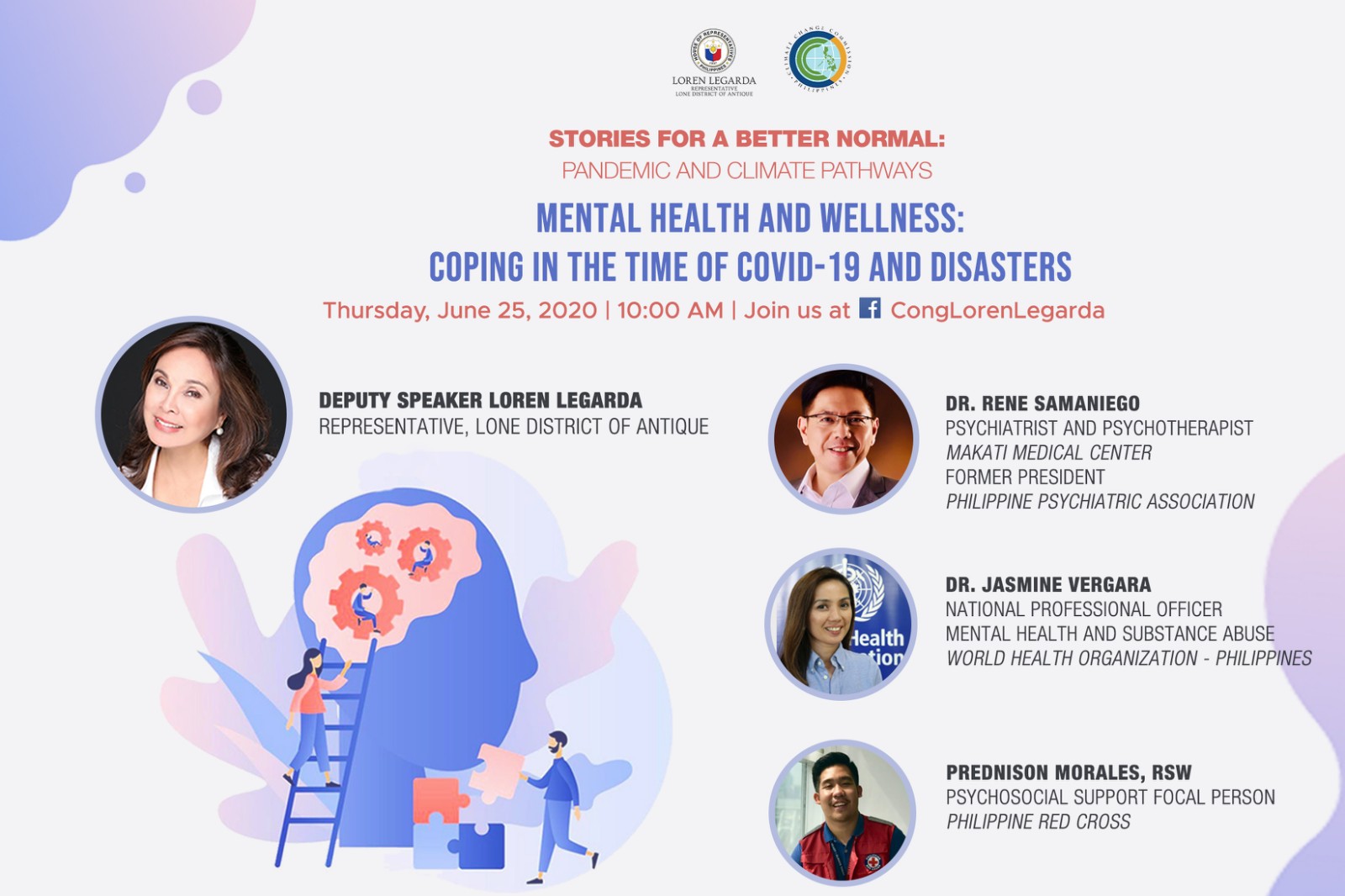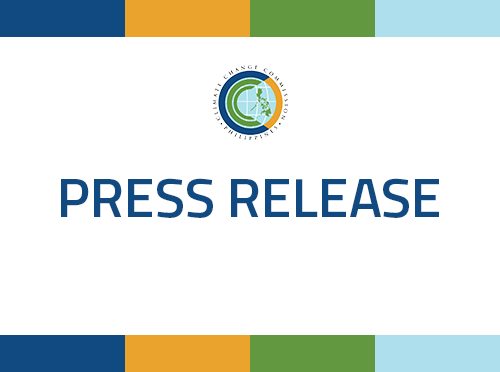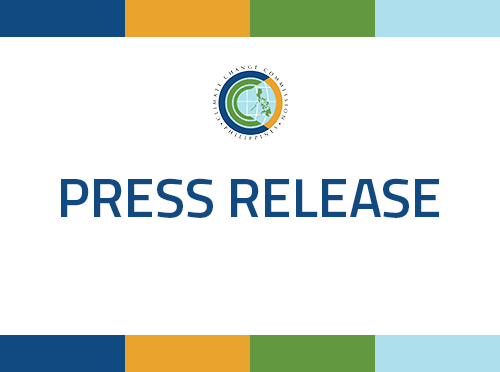MANILA, 10 July 2020 - House Deputy Speaker and Antique Representative Loren Legarda, together with resource speakers, shared tips on good nutrition and diet as well as the importance of preserving local food heritage, during the 8th episode of “Stories for a Better Normal: Pandemic and Climate Pathways,” with the topic, “Nutrition, Diet, and Culinary Heritage” shown via Facebook Live.
Sustainable food enthusiasts and nutrition experts joined the online conversation, including Zenaida Velasco, National President of the Nutritionist-Dietitians’ Association of the Philippines; Virgith Buena, Chairperson of the Professional Regulation Commission (PRC) Board of Nutrition & Dietetics; Professor Luchie Callanta, College of Home Economics of the University of the Philippines-Diliman; Chef Jam Melchor, founder of the group Philippine Culinary Heritage Movement; Manuel Onalan, an indigenous Filipino organic farmtrepreneur; Sashah Dioso of the University of the Philippines-Visayas; and Asha Peri, a plant-based chef and founder of The Ecology of Food.
The episode was held in celebration of Nutrition Month this July, by virtue of Presidential Decree No. 491, s. 1974, underscoring the importance of proper nutrition and a diverse diet, as well as growing food in a sustainable manner.
“Isinusulong natin ang konsepto ng sustainability sa ating pamumuhay upang ang ating likas na yaman ay nagagamit natin sa paraan na hindi ito nasasayang, naitatapon, o nauubos. Sa ganitong paraan, tinuturuan natin ang ating sarili na mamuhay nang wasto at may paggalang sa ating kalikasan,” said Legarda.
“Ngayong idinadaos natin ang Nutrition Month sa ating bansa, nawa’y maintindihan din natin ang tama at wastong pagkain at pamumuhay para mapanatili o mapalakas natin ang ating katawan at resistensya lalo na sa panahon ngayon ng pandemya,” added Legarda.
Ms. Zenaida Velasco shared the benefits of eating a balanced diet for our mental health and wellbeing. She noted that unhealthy dietary intake and nutrient depletion can lead to mental health disorders.
“Sa panahon ngayon ng pandemya, marami tayong iniisip at pangamba kaya overwhelmed tayo. Dumadagdag pa ang social distancing sa ating isolation. One of the cornerstones in supporting good mental health is food. Ang ating kinakain at hindi rin kinakain will affect our mood and behavior,” said Ms. Velasco.
Ms. Buena shared tips on how to ensure that families eat healthy food during this pandemic by reading the nutrition label and eating a whole-food, plant-based diet. She also advised viewers to drink more water to avoid dehydration.
“A whole-food, plant-based diet is more of a lifestyle. We emphasize whole minimally-processed food to limit or avoid animal products, focusing on vegetables, fruits, whole grains, legumes, seeds, and nuts. A healthy diet excludes refined foods like added sugar, white flour, and processed oils,” said Ms. Buena.
Prof. Callanta shared the one-week nutritious and balanced cycle menu that was developed by the students of the UP College of Home Economics to help households cook healthy dishes from relief goods provided. She also shared some of the infographics they designed featuring various food rich in vitamins and minerals that can boost our immune system.
“Ngayong may COVID-19, ang unang hinihingi sa atin ay kung papaano papalakasin ang ating resistensya. Sa pamamagitan ng infographics, naglabas kami ng recipes para gawing mas masustansya ang mga delatang nakukuha nating bilang ayuda. Naglabas din kami para sa mga pagkaing mataas sa bitamina at mineral. Dumadating po ang mga ito sa mga local government units (LGUs) at ipinapaskil nila sa mga palengke, at ang iba pa ay humihingi ng permiso para maituro sa mga paaralan,” said Prof. Callanta.
Chef Melchor shared the online database called Ark of Taste, which seeks to create an archive of indigenous food and ingredients from different countries, adding that Slow Food members nominate these food in an effort to promote and preserve biodiversity in grains, rice, fruits, or cooking traditions. He said that for the Philippines, there are 64 approved and archived local food and ingredients, but the aim is to document more through a complementary food mapping initiative.
“Kapag pinaguusapan ang isang produce o pagkain, hindi ito nawawala sa discussions—pwede pang itanim at ihain. Kapag hindi na pinaguusapan, maaaring mamatay ang mga ito katulad ng kultura natin. We have 64 indigenous ingredients and crops at the moment, that's why I am pushing for food mapping. Kung sasandal lang tayo sa international organizations, matagal na panahon ito bago ma-approve. Marami tayong produkto at indigenous crops na kailangan nating gamitin, pag-usapan, at itanim pa para humaba ang buhay at mapakinabangan ng susunod na henerasyon,” said Chef Melchor.
Mr. Onalan, known by many as Mang Manny and an indigenous Filipino organic “farm-trepreneur,” explained the physiology of rice and shared rice nutrition and rice heritage.
“Rice relates to the political, social, and cultural context in our life in the Philippines. Rice in the cultural minorities, particularly in the Cordillera, dito na-develop ‘yung tinatawag natin na heritage, not only in the production side, but also in the consumption side. We are promoting organic rice, which is technically unpolished rice, and usually brown, black, and red. White rice is considered “desecrated” because they have polished off parts that have nutritional phytochemicals. What is left is compound and complex sugar and carbohydrates,” said Mr. Onalan.
Mr. Dioso shared how environmental protection has aided Northern Antique in sustaining the basic needs of Antiqueños during the pandemic.
“Noong nagsimula ‘yong pandemic, ang Pandan ang kauna-unahang bayan sa Antique na nag-register ng positive case ng COVID infection. At dahil nga sa government-imposed lockdown and community restrictions, the community resorted to backyard gardening and river fishing para ma-sustain ang pangangailangan sa pagkain. Naging malaking tulong ‘yung paniniwala at pagprotekta sa environment sa pag-sustain ng pangangailangan ng mga tao sa Northern Antique,” said Dioso.
Ms. Peri gave a quick overview of the “Ecology of Food,” a plant-based nutrition course, and encouraged people to cook their own food using local, organic, and biodiverse food.
“As an educator and chef, when I prepare food on my plate and when I teach, I tell my students that our plate should be a reflection of the biodiversity that grows in the fields, as practiced by our permaculturists, biodynamic farmers, and agri-ecologists, where we grow different crops together instead of just one crop. When we talk about nutritionally diverse food, this can only come from local, organic, and seasonal sources,” said Peri.
As an online discussion to promote health, environmental consciousness, and climate-adaptive practices, Stories for a Better Normal aims to change the mindset of individuals, families, and communities to lead sustainable lives towards a healthier, safer, and much better normal than we used to have.
This online discussion is organized in partnership between the Office of Deputy Speaker Legarda and the Climate Change Commission (CCC), with support from the Institute for Climate and Sustainable Cities (ICSC), The Climate Reality Project-Philippines, and Mother Earth Foundation. Episode 8 may be watched on Facebook (https://www.facebook.com/conglorenlegarda/videos/320743009090549/) and on Youtube (https://www.youtube.com/watch?v=Ea2jxzqdiGs).
July 09, 2020 Thursday

